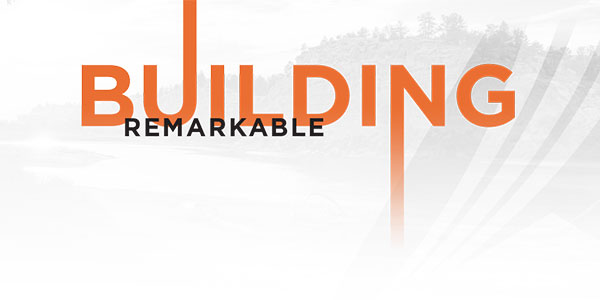BILLINGS – The City of Billings is excited to announce that it has achieved LEED® for Cities Gold certification. Billings is the first city in Montana to be certified using the LEED for Cities rating system. LEED was created by the U.S. Green Building Council (USGBC) and is the world’s most widely used green building rating system.
“Transforming our cities to be more sustainable happens structure by structure, block by block and neighborhood by neighborhood. Billings understands the value of LEED and through certification is setting goals and deploying strategies that are appropriate for their local environment and residents,” said Peter Templeton, president and CEO, USGBC. “Each new LEED certification is one step closer to revolutionizing the places where we live, learn, work and play.”
The City has a long history of leadership in energy efficiency, sustainability and cost saving efforts. Billings achieved LEED for Cities certification by submitting details about existing projects and strategies across the city that are aimed at improving sustainability and the standard of living for residents. The certification program is designed to help cities manage their performance across natural systems, energy emissions, transportation and land use, water, waste and quality of life categories.
Historically, the City has implemented 168 energy efficiency projects, estimated to save 9.4 million kWh/year, equal to about $815,448/year in annual electric cost savings based on current electric rates. These included 143 lighting, electric equipment, Variable Frequency Drives (VFDs) and special projects that received $1,222,416 in NorthWestern Energy (NWE) E+ Program incentives.
In addition, the City utilized $706,571 in Large Customer Universal Systems Benefit (USB) credits for 25 projects.
Project highlights include:
- In 2021 and 2022 alone, the City implemented 46 E+ Commercial Lighting and 11 E+ Commercial Electric (VFD & Chiller) projects, estimated to save a combined 2.1 million kWh/year, equal to about $130,000/year in electric savings. These 57 energy efficiency projects received $179,240 in rebates. This includes a major water treatment plant energy efficiency project that received a $62,500 E+ Electric rebate, saves 729,581 kwh/year, equal to $30,471/year in electric cost savings.
- LED lighting has been installed throughout City facilities including the airport, fire stations, library, parking garages, Billings Operations Center, new City Hall (Stillwater Building), police barn, police evidence building, water treatment, water reclamation and parks. In 2021 and 2022, the Airport completed 17 LED lighting projects, saving 222,549 kWh/year and the major airport expansion/remodel includes LED lighting. The Facilities Division had 12 LED lighting projects, saving 365,786 kWh/year, including installing LEDs in the Stillwater Building basement and stairwells.
- In 2008, the City entered into a public/private partnership with MDU to build a biogas (methane) harvesting facility at the landfill, the only facility of this kind in Montana. MDU invested $10 million to construct and operate the facility to remove landfill gas, clean it and deliver the gas as a marketable ‘renewable’ gas product into the local pipeline network. The project captures greenhouse gas that would otherwise escape into the atmosphere. The City gets a 15 percent share of the sales and carbon credits from the natural gas; creating a new City revenue source. In addition, the City has started converting trash-hauling trucks to use CNG (compressed natural gas).
- The new proposed west end reservoir and water treatment facility is an example of sustainability and efficiency. The reservoir will become Billings’ primary freshwater source. The current system (built in 1914) is severely lacking storage capacity and can only provide 8 to 10 hours of water, should there be a supply issue. By locating the reservoir and water treatment facility closer to the west end growth areas of Billings it is anticipated this project will save the City $200,000-300,000/year in electric costs, currently spent on pumping water long distances and uphill from the present water treatment facility.
- The City has implemented numerous water conservation strategies including utilizing ditch water for irrigation at a number of parks. Parks has also implemented water conserving irrigation systems and controls. Public Works implemented new water pricing structures to incent customers to use less water.
- The City owns two LEED Platinum buildings, 1) MET Transit Center was the first new transportation facility in the US to achieve LEED Platinum in 2010, and 2) the Billings Public Library received LEED Platinum, the first in Montana in 2014. The City installed 43 kW in solar photovoltaic systems at Fire Station 3, the downtown MET Transit Center, and the library, and these new systems are estimated to save 57,367 kWh per year.
The City’s effort to become LEED certified was implemented by the Energy & Conservation Commission (ECC). In 2019, the Billings City Council created the ECC, composed of seven citizens with backgrounds in energy or conservation. The ECC is tasked with examining the City’s energy and water usage and developing strategies for energy and water conservation, recycling, alternate fuels, alternate transportation, alternate energy sources, and buildings that are more efficient.
“The effort to become certified by the LEED for Cities program involved extensive research and documentation. It also revealed the tremendous efforts by City staff and department leaderships over the last ten years to implement innovative projects to make the City more energy and resource efficient and sustainable. All this was done while saving costs and being good stewards of City resources” the commission wrote in a statement.
Billings is the 21st city globally to be Gold certified. Currently, more than 300 cities and communities around the world are committed to tracking sustainability progress through the LEED for Cities and Communities program at USGBC.

